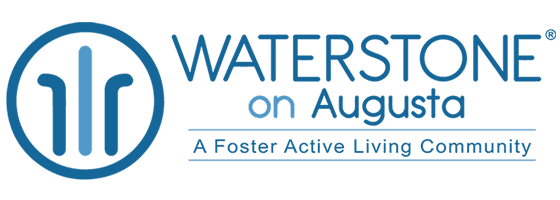Blood clots affect nearly one million Americans each year. Unfortunately, a significant percentage of those Americans are seniors. While the idea of a blood clot can be scary, knowing how to prevent blood clots can give you some peace of mind.
How to Prevent Blood Clots
Blood clots are frightening medical emergencies, and under the worst circumstances, they can even be fatal. While most people recover, they can still suffer some serious consequences. Blood clots can cause heart attacks, strokes, and other deadly cardiac events. They can also cause damage to your internal organs, such as your lungs and kidneys. Learning how to prevent blood clots is the best way to avoid these serious medical issues.
What Is My Risk for Blood Clots?
Individual risks for blood clots vary, but there are several risk factors that seniors should be aware of. For example, many seniors slow down a little bit in their golden years. They may not be aware that a sedentary lifestyle puts you at a higher risk of blood clots. Other risk factors that seniors should watch for are cardiovascular issues, recent infections and medical procedures that require bed rest, and certain medications. If you’re concerned about a heightened risk for blood clots, talk to your doctor about it.
Even if you don’t believe you’re at risk, it’s still smart to learn how to prevent blood clots. There are other risk factors, such as family history, that you may not be aware of. If nothing else, it’s much easier and safer to prevent blood clots than treat them after the fact. So, let’s discuss how to prevent blood clots with some simple lifestyle changes.
Quit Smoking (If You Haven’t Yet)
Smoking is one of the greatest risk factors for blood clots. Smoking slows down your circulation, and also damages your heart and lungs. The less efficient your circulation is, the more likely blood clots become. If you’re a lifelong smoker, there’s never been a better time to quit than now.
Adjust Your Diet
It probably won’t surprise you to learn that foods that are better for your cardiovascular health also help reduce your risk of blood clots. So, limit your consumption of red meat and unhealthy fats, and also be careful with salt. Fill your plate with plenty of fresh fruit and vegetables, especially leafy greens. Finally, drink lots of water throughout the day to keep your body hydrated, which will help your circulation.
Keep Your Legs Moving
Blood clots in your legs and torso (otherwise known as deep vein thrombosis) are some of the most common and dangerous blood clots you can get. In order to reduce your risk, it’s a good idea to keep the blood circulating in your legs. Make these simple exercises a part of your daily routine:
- Do seated leg stretches. Raise and lower your heels and toes, and constrict your leg muscles. Do this once per hour of seated activity.
- If you are able, get up and walk around your space every two to three hours. If you can’t, seated leg stretches can still be beneficial.
- If you need to lay down for long periods of time, you can adapt leg stretches to work for you. Make sure your legs are elevated above your heart, and flex your feet back and forth. Stretch your thighs out by raising and lowering your legs one at a time. Do this every few hours.
- Low-impact aerobic exercise, such as walking or swimming, also helps reduce blood clot risk. Talk to your doctor about making aerobic exercise a regular part of your workout.
Dress for Success
Exercising and dieting can feel like a lot of work, so here’s one place you can take it easy. Wearing loose-fitting and comfortable clothing can also reduce your risk of blood clots. On the other hand, your doctor may recommend some more constricting clothing, like compression stockings. Wearing these as recommended can seriously cut your risk of recurring blood clots and other issues, so be sure to listen to your doctor’s orders.
_____
Nobody wants to think about a life-threatening emergency. When it comes to blood clots, an ounce of prevention is worth a pound of cure. Learn how to prevent blood clots, and you’ll be able to keep enjoying your senior years worry-free.
Are you looking for a premier assisted living and memory care community in the heart of downtown Greenville, South Carolina? Come visit us at Waterstone on Augusta. Our community is both relaxing and elegant, and we strive to enhance the quality of life of the seniors we serve through teamwork and unity. To learn more about our amenities and to view our lovely community, please schedule a tour online or call us today at 864-605-7236.

